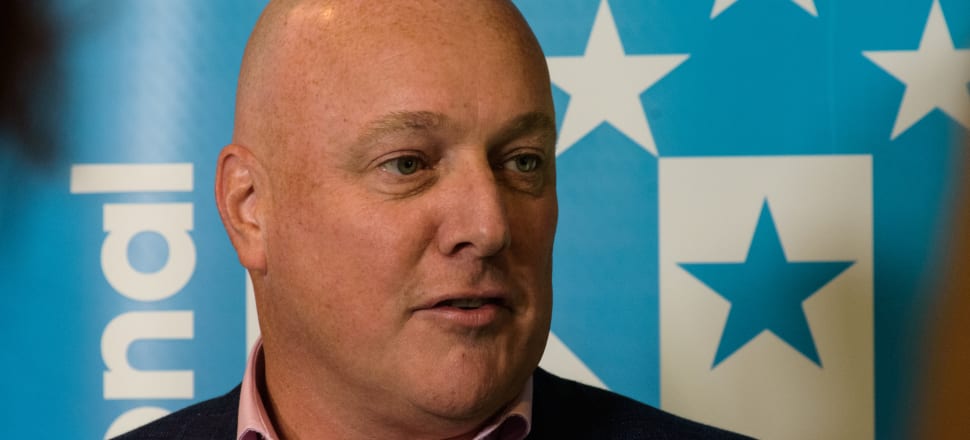
Christopher Luxon denies ratepayers will pay more under National’s alternative Three Waters proposal while at the same time accepting some councils might charge more for water
Since releasing its water infrastructure policy last weekend National’s leader has insisted it won’t result in rate hikes.
In an interview with Newsroom on Wednesday Christopher Luxon doubled down, saying “we don’t think rates will go up because of this at all because essentially, councils are going to make their own decisions about rates and what’s happening with the growth of their city and all that sort of stuff”.
READ MORE:
* Et voilà! Here’s something someone else prepared a little earlier
* Q&A: Who should pay for desperately needed Three Waters work
* Three Waters' magical kete with room to borrow more and more
But when pushed on whether some councils would have to hike water charges – a cost to a wider group of people than just ratepayers – he accepted that could be one of the options on the table.
“That may be one of the options, I don’t know … there’s a number of ways they can work it out,” he said.
Luxon said the guts of National’s proposal was giving councils the ability to form a CCO – a council-controlled organisation where neighbouring councils join their water infrastructure assets together, increasing the overall worth – and allowing the entity to borrow long-term debt funding and pay it back over time.
But within those CCOs there will be councils that have far worse infrastructure than others because of a lack of investment over previous decades.
“We’re not in a world where we’re going to have the money that was supposed to be invested on pipes being spent on town halls and parks and other things, and therefore the money never gets to those water services." - Christopher Luxon
In those cases, the councils that have managed their assets poorly could end up needing to contribute more and one of the mechanisms for doing that would be to increase water charges.
“There’s a range of scenarios that some of the councils have proposed to us about how they might go about doing that, and they’ll be different, but they themselves will work that out,” Luxon said.
Once the water infrastructure assets are joined, the assets will be ring-fenced to protect them and ensure investment is made.
“We’re not in a world where we’re going to have the money that was supposed to be invested on pipes being spent on town halls and parks and other things, and therefore the money never gets to those water services,” he said.
A “very poor” real-life example of that is Wellington, which Luxon said had “managed its assets incredibly badly”.
“The bottom line is we’re going to take those assets … put those assets into a council-controlled organisation, and go off and secure long-term debt funding for them that they pay off over 30 years consistently to make sure they’re invested in.”
Luxon said how the debt was paid off would vary from one CCO to the next.
“There could be water charges, user pays, there could be a whole bunch of different things that councils set up. Councils across New Zealand do it very differently at the moment.”
Luxon said National had been working closely with councils through Communities 4 Local Democracy, to make sure they’d designed a system that would provide what individual councils had been calling for.
Those councils were consulted on the finished product National announced last weekend and agreed it would work, he said.
Labour continues to push ahead with its Three Waters plan, though it is currently undergoing a restructure after Prime Minister Chris Hipkins told Local Government Minister Kieran McAnulty to go back and consult with councils and iwi.
McAnulty was given a month to seek feedback and rework Three Waters – the deadline for which is next week.







